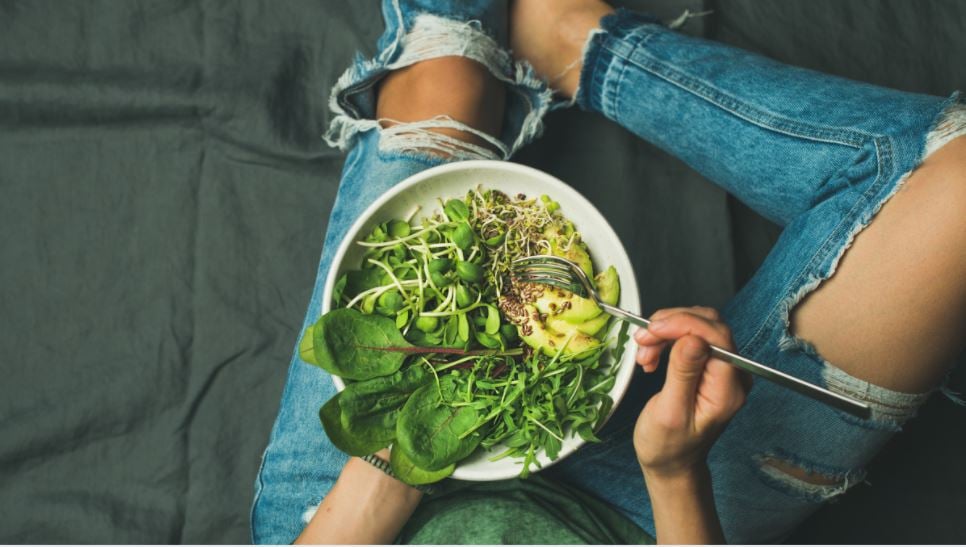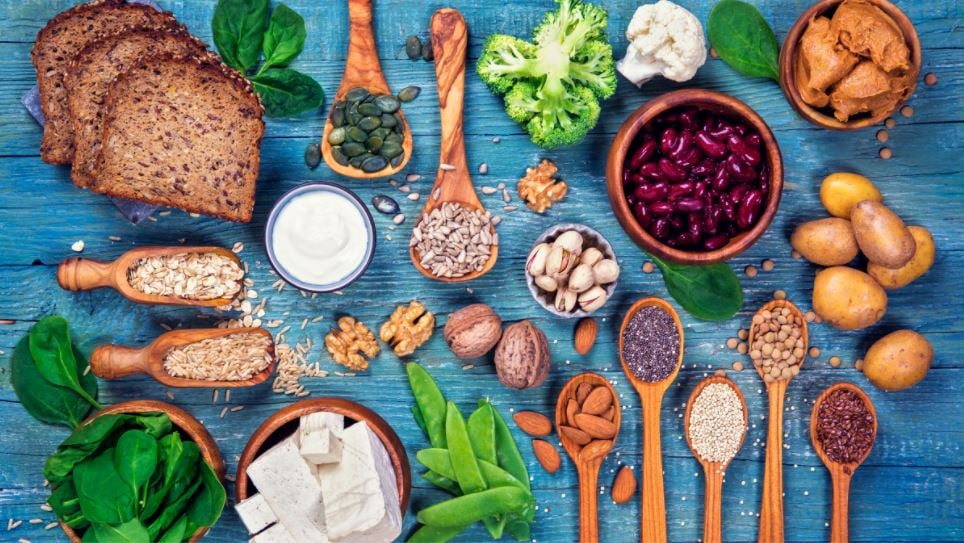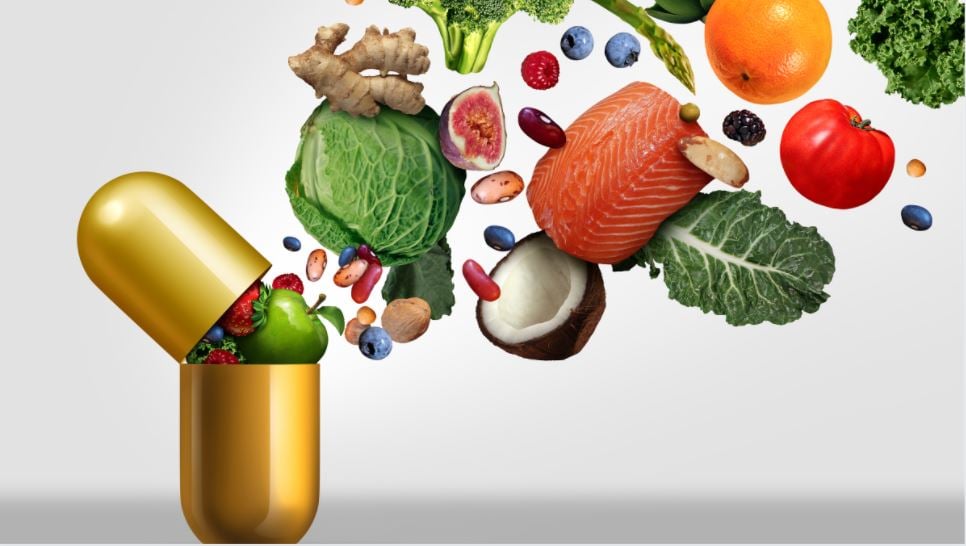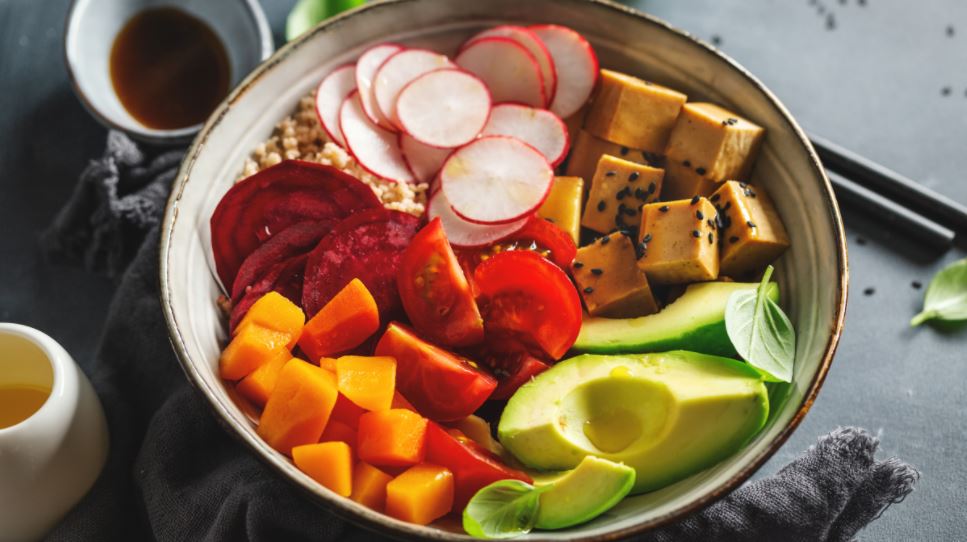Being a vegetarian or a vegan is not the same thing. These both have become lifestyles that many are following worldwide for different purposes, such as following a healthy diet, ethnicity, or religious purposes. Let's dig into the details and see the underlying differences you may miss when discussing these two terms.
What Is A Vegetarian?
Vegetarians are people who do not eat meat. If you are a vegetarian, your diet will likely contain fruits and vegetables, grains and pulses, nuts and seeds, legumes, yeast, dairy products, and eggs.

Why Become A Vegetarian / Vegan?
A Long, Healthy Life
Animal products and byproducts can eventually slow down your immune system. They may also lead to blocking your arteries in the future, resulting in early death. According to various studies, people with a high life expectancy follow a strict vegetarian diet free from fat; more fruits and vegetables can increase your life span by ten to twelve years.
Warding Off Various Diseases
A vegetarian diet is said to be healthier than the average American diet. A low-fat vegetarian diet helps prevent various coronary artery diseases and cancer. Restricting cholesterol and animal fat from your diet promotes a higher fiber intake, preventing cardiovascular diseases.
Maintaining Your Weight
A vegetarian diet helps you maintain a healthy body weight.
Strong And Healthy Bones
When your body is low on calcium, it extracts calcium from your bones, making them weaker. Numerous vegetables are high in calcium. By consuming them, you can receive the amount of calcium required for your body. Dairy products will also help maintain your calcium level.
The Types Of Vegetarianism / Veganism
Lacto-Ovo Vegetarian
This is a common vegetarian diet. If you are a lacto-ovo vegetarian, your diet does not contain meat or fish. However, lacto-ovo vegetarians consume dairy products such as cheese, butter, and milk, along with eggs.
Ovo Vegetarian
This vegetarian diet strictly excludes all forms of meat, fish, and dairy products but does include egg products.
Lacto Vegetarian
As a lacto vegetarian, you do not eat meat, fish, or egg products. However, lactose and various dairy products are a part of your diet.
Vegan
Vegan is the strictest level of plant-based eating. Being a vegan means you cannot eat meat, fish, or dairy products. You do not make egg products a part of your diet, either. Along with this way of eating, you also boycott any use of animal products in retail, such as clothing and personal care products.

Veganism Versus Vegetarianism: Which Is Better?
Veganism
Veganism, as mentioned earlier, is not just a diet but a specific way of living. This way of life seeks an end to exploitation and any form of cruelty done to animals. This lifestyle is practical, healthy, and benefits humans and other living creatures, along with maintaining a sustainable environment.
Vegetarianism
Vegetarians exclude meat and fish in the diet but can incorporate dairy or egg products. Vegetarianism can be the starting point of a journey that may lead you towards veganism once you know the conditions.
Why Vegans Avoid Dairy
The reason why vegans boycott dairy production is the fact that this process often involves animal cruelty. To reproduce, female cows are impregnated artificially. Male cows are slaughtered, as they are of no use to the industry. Any calves born are immediately separated from their mothers and are brought up artificially using chemicals and procedures leading to fat growth. The female cows are used for producing milk and giving birth. Once they are of no use to the industry, they are killed, and the meat is used for eating purposes.
Harm Done During Egg Production
The production of eggs also involves cruel methods. The roosters are slaughtered because they cannot lay eggs and are only used for their meat. As the roosters carry less financial worth, they are not kept for long. Hens are kept in extreme conditions while they lay eggs; once hens are no longer fertile, they are slaughtered. Any chicks that hatch are infused with chemicals that promote fast growth, which will satisfy industry needs.
Vitamin/Mineral Supplementation On A Vegetarian/Vegan Diet
The diet plan you choose should have the right amount of nutrition for healthy functioning. If you are following a vegetarian diet, it should be low in terms of saturated fat. It should also have a high proportion of whole grains, fresh fruits, and vegetables.
A significant concern that people face while becoming a vegetarian is vitamin/mineral supplementation. Since vegetarians do not eat meat or fish, many are concerned about how the nutritious value is substituted. Intakes of protein, iron, and zinc are highly constituted in meat and fish, along with vitamin B12 and omega-3 fatty acids. How can a vegetarian ensure that these elements are a part of their diet while not eating meat or fish? These elements are naturally included in vegetarian and vegan diets without making any extra effort.
Fats
Butter, cheese, cream, coconut oil, coconut cream, and palm oil are sources of saturated fat. Unsaturated fat is found in flaxseeds and soya seed oil. You can also add soya beans and walnuts to your diet to ensure unsaturated fat intake. Monounsaturated fat comes from olive oil, tree nuts, peanuts, and avocados.
Omegas
The right amounts of omegas are vital for the healthy functioning of the brain and your immunity system. By including soya beans, soya oil, walnuts, flax seeds, corn oil, sunflower oil, or rapeseed oil, you can make sure that you are receiving the right amounts of omegas.
Calcium
Calcium is a significant part of your diet. If you do not consume the right amount of calcium daily, you may experience tooth decay or weak bones. Make sure to include bread, broccoli, grains, pulses, and oranges in your diet, which all contain high amounts of calcium. A balanced diet comprises consuming around seven hundred milligrams of calcium a day.
Vitamin B12
Vitamin B12 is highly essential in building your DNA and red blood cells and maintaining nerve cell growth. To have the right amount of vitamin B12 in your diet, you can consume yeast, cheese, butter, milk, or fortified soya milk and cereal.
Iodine
Iodine is required in your body for your hormones to function effectively and efficiently. You can do so by consuming milk, butter, sea salt, and seaweed.
Iron
There is no denying that iron is a vital nutrient for our body; it helps in the proper functioning of muscles, energy level, and it is required by your blood cells. Dried fruits, nuts, bread, broccoli, cabbage, and pulses have a high amount of iron in them. On average, it is suggested to have an iron intake of 9-14 milligrams a day.
Vitamin D
Usually, an intake of ten micrograms a day is substantial enough for the proper functioning of muscles, healthy bones, and teeth. Cereal, mushrooms, or soya milk have adequate sources of vitamin D. You can also substitute it with sunlight as it is rich in vitamin D.
Protein
Protein is highly essential for maintaining the steady growth of the body. You can get the proper amount of this nutrient by eating soya beans, nuts, beans, cereals, eggs, or cheese.
Zinc
Zinc is needed for cellular growth. Zinc also strengthens your immune system and promotes the healing of wounds. To maintain a balanced diet, you must have 7-9 micrograms of zinc every day. You can ensure the right intake by consuming nuts and seeds, milk, potatoes, bread, and peas and beans.

Know What Is Right For Your Body
Every human body is different from one another. To maintain a healthy vegetarian diet, one should carefully examine the requirements for their own body, consider their routines, and understand which nutrients are most beneficial for them. One should weigh all the possible consequences before deciding on the right amount of nutrients.
Choosing a healthy plant-based and vegan diet is most beneficial when it comes to:
-
Higher levels of energy;
-
Improved sleep;
-
Aids in energy and overall happiness;
-
Provides a sense of comfort and relief;
-
Could prevent major diseases such as obesity and diabetes;
-
Accomplish weight-loss and management; and
-
Improves mental and cognitive functioning.
There are really no excuses not to try healthier habits in your everyday life. If you are a man or woman looking for specific benefits of adopting healthier habits or just want to know about the general healing properties of herbs. Please remember to comment or post any health questions, or contact us directly!


















